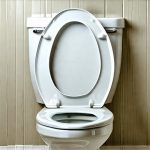The connection between lunar cycles and human physiology has been a source of fascination – and skepticism – for centuries. From ancient folklore attributing behavioral changes to the “lunatic” effect (derived from luna, Latin for moon) to modern observations exploring potential correlations, the moon’s gravitational pull and its associated light influence continue to spark debate. While many perceived links remain anecdotal or lack robust scientific backing, recent interest has turned towards more subtle physiological effects, including disruptions in sleep patterns. These disruptions, often manifesting as difficulty falling asleep, increased wakefulness during the night, or altered sleep architecture, can have cascading consequences for various bodily functions, and surprisingly, some individuals report noticeable changes in gastrointestinal function coinciding with the full moon phase. This article delves into the intriguing phenomenon of stool instability – altered bowel movements including diarrhea, constipation, bloating, and general discomfort – experienced by some during periods of full-moon related sleep disruption.
It’s crucial to state upfront that establishing a direct causal link between lunar phases and gastrointestinal distress remains challenging. The human body is an incredibly complex system, influenced by countless internal and external factors. Dietary habits, stress levels, underlying medical conditions, and even time of year all play significant roles in bowel regularity. However, the consistent reports from individuals experiencing these changes warrant exploration, especially considering the well-documented impact of sleep on gut health. This isn’t about believing in mystical forces; it’s about understanding how subtle shifts in our internal environment – triggered by something as seemingly distant as the moon – might interact with our physiology to produce noticeable effects. We will explore potential mechanisms and ways to mitigate these disruptions, always emphasizing a cautious approach and the importance of consulting healthcare professionals for any persistent gastrointestinal issues. Understanding stool signs can be part of this process.
Sleep Disruption & The Gut-Brain Axis
Sleep is not merely a period of rest; it’s an active process vital for numerous physiological functions, including digestion. During sleep, our bodies regulate hormones that influence gut motility (the movement of food through the digestive tract), intestinal permeability (“leaky gut”), and the composition of the gut microbiome – the trillions of bacteria living in our intestines. When sleep is disrupted, these processes are thrown off balance. Specifically, a lack of sufficient REM sleep can impact the diversity and function of the gut microbiome, potentially leading to increased inflammation and altered bowel habits. The gut-brain axis, a bidirectional communication network between the digestive system and the brain, plays a central role here. Sleep disruption affects this axis, which in turn influences gastrointestinal function, creating a feedback loop where poor sleep exacerbates GI symptoms, and vice versa. Examining how gut test results can help understand these connections is crucial.
The full moon’s impact on sleep is thought to stem from several factors. Even subtle increases in ambient light during a full moon can suppress melatonin production – the hormone responsible for regulating sleep-wake cycles. Furthermore, some research suggests that the gravitational pull of the moon might subtly influence fluid dynamics within the body, potentially affecting hormonal balance and even nerve function. While these effects are likely small individually, they could combine to create noticeable sleep disruption in sensitive individuals. It’s important to note this isn’t about a sudden, dramatic shift; it’s more about a subtle alteration that pushes already vulnerable systems over the edge. Individuals with pre-existing gastrointestinal conditions (like Irritable Bowel Syndrome or Inflammatory Bowel Disease) are likely to be even more susceptible to these disruptions due to their baseline sensitivity. It’s also worth noting possible links between GERD and choking sensation that can further disrupt sleep.
Finally, consider the psychological component. Belief in lunar effects can contribute to a nocebo effect – where negative expectations lead to actual negative symptoms. If someone believes the full moon will disrupt their sleep and cause digestive issues, they may be more likely to experience those outcomes, even if there’s no direct physiological link. This highlights the power of the mind-body connection and underscores the need for a holistic approach to understanding these phenomena.
Potential Mechanisms Linking Lunar Cycles & Bowel Changes
The question remains: how might sleep disruption related to the full moon translate into stool instability? Several interconnected mechanisms are proposed, though definitive proof is still lacking.
- Hormonal Imbalance: Sleep deprivation affects cortisol levels – the stress hormone. Elevated cortisol can disrupt gut motility and increase intestinal permeability. This means more undigested food particles or bacterial toxins could leak into the bloodstream, triggering inflammation and causing digestive upset. Simultaneously, sleep loss impacts ghrelin and leptin, hormones regulating appetite and satiety; altered hormone balance can lead to dietary changes that further affect bowel habits.
- Microbiome Disruption: As mentioned earlier, REM sleep is crucial for microbiome health. Full-moon related sleep disruption could alter the gut microbiome composition, reducing beneficial bacteria and increasing potentially harmful ones. This imbalance can lead to increased gas production, bloating, and altered stool consistency. A less diverse microbiome is also associated with reduced ability to digest certain foods, leading to intolerance symptoms. Understanding stool bacteria ratios can help identify these imbalances.
- Vagal Nerve Modulation: The vagus nerve connects the brain directly to the gut, playing a critical role in regulating digestive function. Sleep deprivation can affect vagal tone – the activity of the vagus nerve. Reduced vagal tone is linked to slower gastric emptying, constipation, and increased sensitivity to pain in the gut. There’s speculation that subtle changes in the body’s gravitational response to lunar cycles might further influence vagal nerve activity, but this remains largely theoretical.
Dietary & Lifestyle Interventions
While we can’t control the moon itself, we can mitigate its potential impact on our sleep and digestive health. Here are some strategies:
- Sleep Hygiene Optimization: Prioritize good sleep habits consistently, not just during full moons. This includes:
- Maintaining a regular sleep schedule (even on weekends)
- Creating a dark, quiet, and cool sleep environment
- Avoiding caffeine and alcohol before bed
- Disconnecting from screens at least an hour before bedtime
- Dietary Adjustments: Focus on easily digestible foods during periods of potential disruption.
- Reduce intake of processed foods, sugary drinks, and excessive fats.
- Increase fiber intake gradually to avoid bloating.
- Consider a low-FODMAP diet temporarily if you’re prone to IBS symptoms. (Consult with a doctor or registered dietitian before making significant dietary changes.)
- Stress Management: Practice relaxation techniques such as deep breathing exercises, meditation, or yoga. Stress exacerbates digestive issues and can worsen sleep disruption. Looking into tools for gut checks during stressful periods can be beneficial.
Monitoring & Seeking Professional Help
It’s essential to differentiate between occasional stool instability related to lunar cycles and persistent gastrointestinal problems requiring medical attention. – Keep a detailed diary tracking your bowel movements, sleep patterns, and the phases of the moon for several months. This can help identify any potential correlations. – If you experience severe diarrhea, constipation lasting more than a few days, blood in your stool, or significant abdominal pain, consult a healthcare professional immediately. These symptoms could indicate an underlying medical condition unrelated to lunar cycles. – Do not self-diagnose or attempt to treat gastrointestinal issues without proper medical guidance. Always prioritize professional evaluation and treatment for any concerning symptoms. Remember that the correlation between full moon sleep disruption and stool instability is still under investigation, and a cautious, informed approach is vital. Further testing may be needed based on signs warranting a panel. And remember to check for top early signs in stool tests!


















